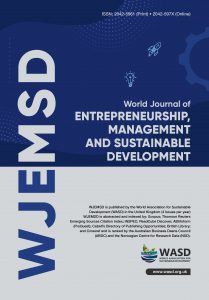(04) King Salman Humanitarian Aid and Relief Centre (KSrelief) during the COVID-19 crisis and its impact on the seroprevalence of COVID-19 antibodies in healthcare workers in Yemen, Prof. Amen Bawazir, Watheq Taher, Dr. Wasif Khan
 Prof. Amen Bawazir
Prof. Amen Bawazir
Faculty of Medicine and Health Sciences, The University of Aden, Yemen
Department of Basic Medical Sciences, College of Medicine, AlMaarefa University
Kingdom of Saudi Arabia
Email: abawazir@mcst.edu.sa
Watheq Thabet Taher
Faculty of Medicine and Health Sciences, The University of Aden
Yemen
Dr Wasif Ali Khan
Department of Basic Medical Sciences, College of Medicine, AlMaarefa University
Kingdom of Saudi Arabia
Email: wkhan@mcst.edu.sa
DOI: 10.47556/J.WJEMSD.19.3-4.2023.4
PURPOSE: The purpose of this study is to review the humanitarian work done by KSrelief to support the healthcare sector in Yemen during the COVID-19 crisis, and to assess its impacts on the seroprevalence rate of anti-SARS-CoV-2 antibodies among healthcare workers (HCWs) in Yemen.
DESIGN/METHODOLOGY/APPROACH: Data related to the KSrelief humanitarian efforts, particularly the medical aid to the healthcare sector in Yemen, over the 3-year period from 2020 to 2022 was analysed. In addition, a cross-sectional study was conducted among 404 HCWs in Lahj and AL-Dhalea hospitals from 1 June-30 September 2022. A self-administered questionnaire was distributed to all voluntary HCWs. A blood test for the presence of anti-nucleocapsid (anti-N) antibodies by anti-SARS-CoV-2 immunoassay using an electrochemiluminescence technique was taken. The impact of the aid efforts on the seroprevalence rate was assessed and correlated, and the lessons learned and what needs to be done to improve the utilisation of the aid efforts are discussed.
STUDY FINDINGS: Up to December 2022, KSrelief implemented 764 projects with budget of US$1,130,771,135. These projects were executed through the Yemeni Ministry of Public Health and covered more than 12 governorates of Yemen. The projects included a vaccination programme, the provision of personal protection equipment (PPE) and other protective gear for HCWs, RT-PCR devices and accessories, and medical and laboratory devices and equipment. The seroprevalence test revealed 94.0% of the healthcare workers with Anti-SARS-CoV-2 antibodies.
RESEARCH LIMITATIONS/IMPLICATIONS: To the best of our knowledge, this is the first study that compares the impact of the humanitarian assistance provided by KSrelief in Yemen during the COVID-19 crisis with the level of seroprevalence of COVID-19 among HCWs in Lahj and AL-Dhalea governorates in Yemen. It is also the first study documenting the seropositivity of SARS-CoV-2 antibodies in HCWs in Yemen. The findings among HCWs in different healthcare settings in the country are non-general; this is because only 2 governorates out of 22 were selected that could be reported among the findings’ limitations. In addition, there are some potential information recall biases such as in reporting of previous infection with SARS-CoV-2, the use of PPE, and infection prevention and control (IPC) training.
PRACTICAL IMPLICATIONS: Although the KSrelief efforts are directed at all governorates of Yemen, the impact of these efforts on the seroprevalence rate in other regions needs to be assessed to get an overall view of the correlation between the two. This study revealed that the ultimate great humanitarian assistance and relief measures provided by KSrelief to the healthcare sector in Yemen in the form of medical equipment and supplies to fight the COVID crisis set a true example of universal brotherhood; this can be replicated by other organisations working to decrease human suffering from natural or man-made disasters. Vaccination and reinforcement of IPC measures and training activities for imparting knowledge and appropriate implementation of the IPC protocol are key to preventing morbidity and mortality among HCWs.
ORIGINALITY/VALUE: The lessons learned from the correlation of the seroprevalence study with the aid efforts can be used as a guide by KSrelief themselves as well as by the other organisations working to deliver medical aid to the conflict-ridden countries, to better manage the precious resources and to identify any lacunae’s that may hinder full utilisation of the relief efforts. Although humanitarian assistance to Yemen has been provided by KSrelief since the beginning of the political turmoil, the relief measures were increased exponentially to counter the challenges of the COVID-19 pandemic and the social and economic deprivation due to the ongoing war. This seroprevalence survey was the first to document the seropositivity of SARS-CoV-2 antibodies in HCWs in Yemen after the fifth global COVID-19 wave.
KEYWORDS: KSrelief; Humanitarian Assistance; Seroprevalence; COVID-19; Healthcare Workers.

